
Rogue Company Review
So, Rogue Company, huh? Which company is it that’s gone “rogue”? What organisation has gone against the grain, breaking the rules and disrupting the natural order of things? One thing’s for sure: it’s certainly not First Watch Games, the developer of the multiplayer free-to-play third-person shooter in the spotlight today. As a creative endeavour, Rogue Company is just about the furthest thing from a “rogue” act as you can get. It’s the videogame equivalent of eating your dinner before your dessert; it’s “safely ejecting” your USB device before pulling it out; it’s wearing the same outfit every day for a decade. In simple terms, Rogue Company is everything you’ve seen in a videogame a hundred times before, but that’s not necessarily such a bad thing. Like coming home to a steaming plate of your mum’s home cooking, it’s a kind of familiarity that feels comfortable, easy to sink into. Rogue Company won’t change the world, but it’s a fun time nevertheless.
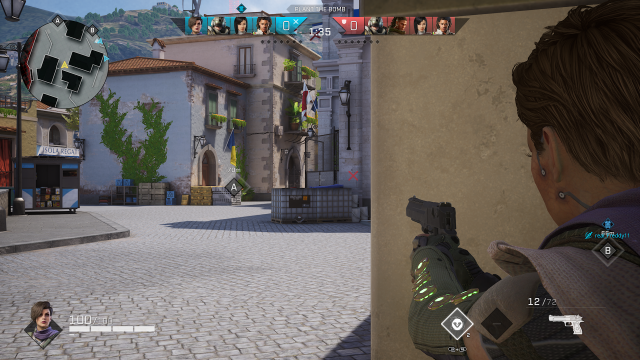
You know the drill here: eight players split across two opposing teams, armed with weapons, gadgets, perks and unique abilities (more on all that later). Each team starts at a different end of the map and must outwit or outshoot their foes to win the objective. Of course, being a third-person multiplayer game in 2020, the players don’t just spawn into the map, they skydive into it. This isn’t as big of a change as it first seems, as the possible landing zones are incredibly limited, meaning that it’s more of an aesthetic choice than a gameplay one. Still, it’s more fun gliding into a spawn zone than just appearing there like some mercenary with short-term memory issues.
With that said, it wouldn't come as a complete surprise to discover that some of the various characters (known as Rogues) players embody in Rogue Company suffer from a trait like memory loss. They're all certainly unique enough to support such ideas. There are sleek Yakuza-types, military-ish enforcers, futuristic mercenary-looking characters, sharply-dressed assassins and more. While none of their backstories are exactly fleshed out, they still aren’t carbon copies of each other in terms of design or gameplay.
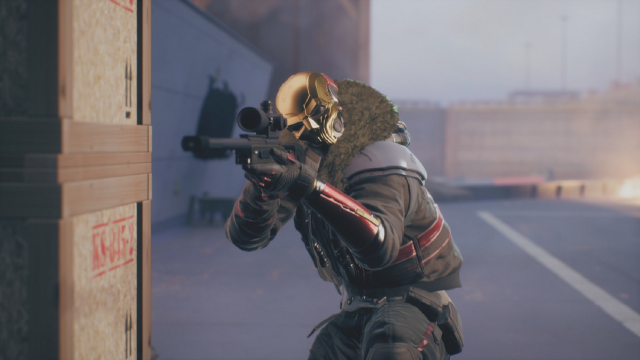
As well as coming equipped with a unique loadout of weapons and equipment (sniper rifles, shotguns, assault rifles, SMGs, etc.), each character boasts a unique active and passive ability. From throwable knife-mines to auto-revives, speed boosts to deployable shields and beyond. These abilities aren’t integral to the moment-to-moment gameplay; it’s more than possible to succeed without ever engaging with them. Still, they add some variety to shootouts and help further distinguish the various characters too.
As a free-to-play game, it's inevitable there'll be some hooks and tantalising incentives to get you spending some of your hard-earned cash. In Rogue Company, this comes in the form of both unlockable characters as well as cosmetics such as character skins, weapon skins, emotes and sprays. Neither of these monetisation methods come across as particularly predatory. Sure, you’ll only have access to six of the Rogues initially (out of 15), but if you don’t want to pay real money for the rest, you can always purchase them one at a time with in-game currency, although saving this up might take some time, which will present a problem for some players.
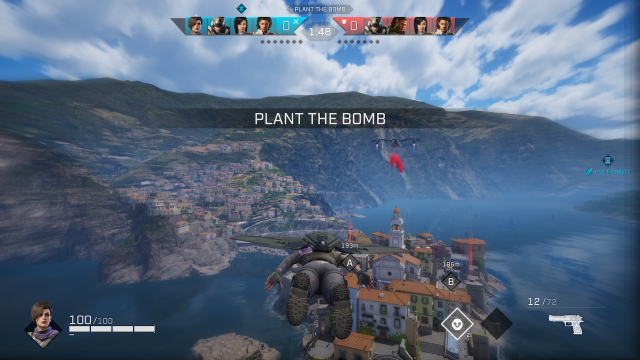
When you get past all the cosmetics, unlocks and in-game currencies, you’re left with what really matters: gameplay. Rogue Company comes into itself when hot lead flies and bodies drop. The shooting mechanics are satisfying, aiming is tight and the movement controls are quick and responsive. The time-to-kill feels spot on, leaving a brief window to react and potentially survive once an enemy has started hammering you with bullets, only if you’re quick, of course. While the explosive-type items (mines, remote explosives, sticky grenades, regular grenades, etc.) are a little too cumbersome to be of much use in most situations, they hardly ruin the flow of gameplay and might even be a boon in the right player’s hands.
So the gameplay hits the spot, but what’s the context around said gameplay? Matches consist of multiple fast-paced rounds lasting a couple of minutes each, if that. Victory in any given round hinges on intelligent player positioning, quick reactions and wise use of each character’s abilities. Killing the entire enemy team will always net a victory, but completing the game mode’s objective is the ‘proper’ way to win the round. If any of this is new to you, then let me say “welcome to videogames! I’ll be your guide”. Snark aside, I really did mean it when I said Rogue Company is the same thing you’ve played a hundred times before, but I also don’t want that to sound too derisive. It feels like it’s been a while since there’s been a multiplayer shooter as pure as this. It’s not free of the trappings of modern multiplayer gaming, far from it, but it still has a leg in the older way of doing things. In today’s gaming market, that’s greatly appreciated.
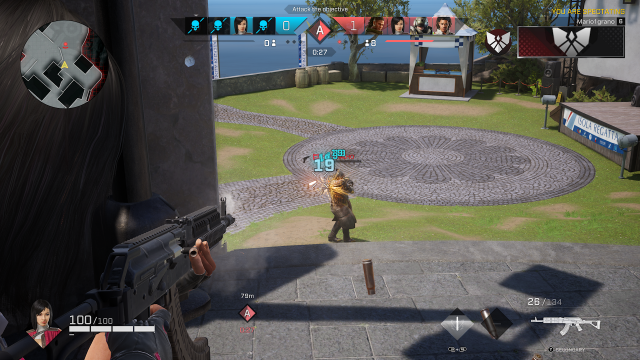
The game mode offering, however, is a little thin on the ground, with only three modes to pick from: Demolition, in which one team must attempt to plant a bomb in the map while another tries to prevent them (or else defuse the bomb); Extraction, in which the teams compete to hack into a device placed somewhere in the map; and Strikeout, where players will fight for control of a single capture point placed randomly in the map (the location changes each round). While Strikeout operates on a “Team Lives” system, death is permanent in the other two game modes, at least until the start of the following round. This adds a sense of tension and meaning to your tactical choices, preventing the frantic ‘sprint around and shoot anything’ mindset that infinite respawns give rise to.
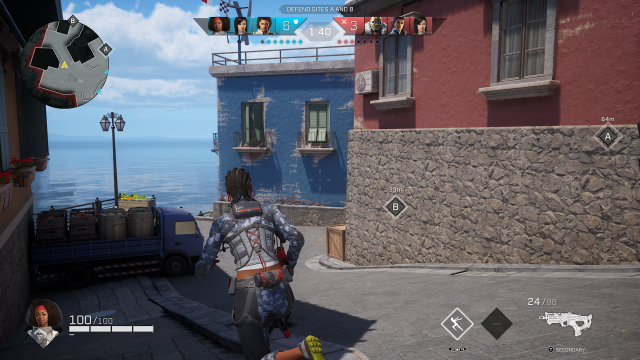
There’s no single thing that makes Rogue Company stand out among its peers, no gimmick or must-have feature. Still, despite a weak game mode selection and an easy-to-ignore abilities system, the game offers a hell of a lot of fun at an incredibly reasonable price (£0.00, which I believe converts to roughly $0.00). It goes without saying that “it’s fun with friends”, but so is watching paint dry, so what does that phrase even mean? What I’ll say instead is: it’s fun with randoms, and it’ll be an absolute riot with friends.
Rogue Company (Reviewed on Xbox Series S)
This game is great, with minimal or no negatives.
Rogue Company mixes casual and tactical gameplay styles to create a hero shooter that, while not particularly innovative, is incredibly entertaining. You’ve seen this all before folks, but sometimes good things stick around for a reason.










COMMENTS
at - 02:30pm, 23rd December 2020
so just cause ?